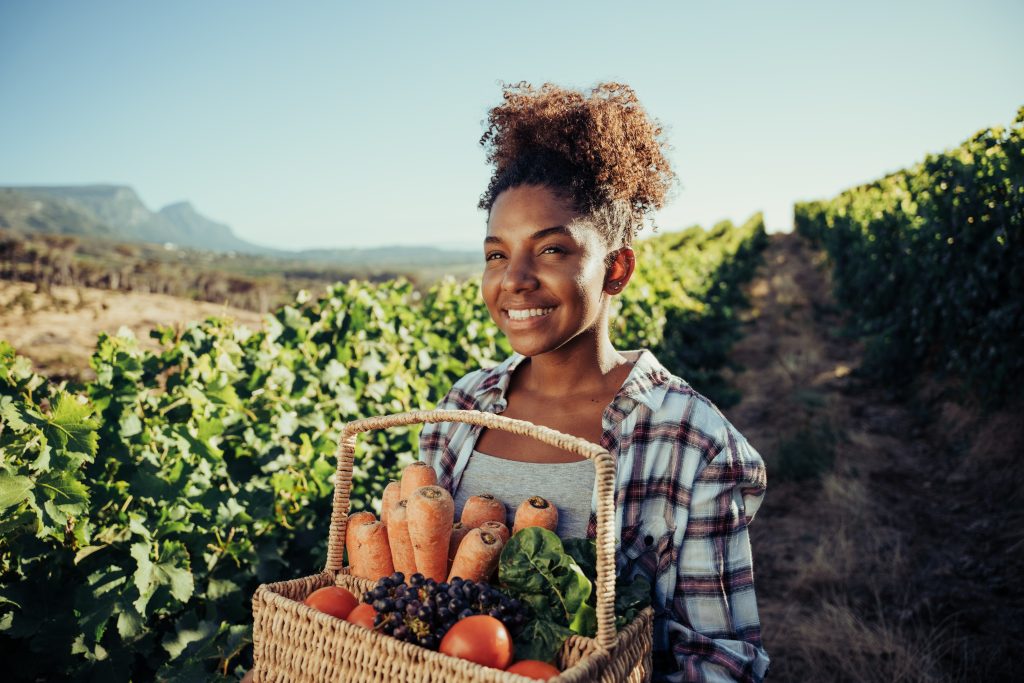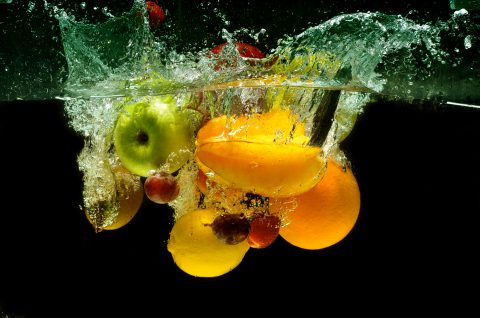Sunday Times Agriculture
Healthier Food For A Healthier Planet
European consumers have led the charge towards chemical-free food that reduces the emissions responsible for climate change. Although export-oriented farmers are more vulnerable to the whims of these consumers, the quest for healthy food for a healthy planet is taking shape in a broader sense worldwide.
Besides maintaining market share, food producers are increasingly finding that combining old and new techniques in a way that brings the best result for people and plant offers the best solutions for their businesses.
Sias Leipoldt, commercial product portfolio manager at Andermatt Madumbi, says that producing food to feed a growing global population cannot be done without chemicals. “But there is an increased focus on adopting a holistic approach and focusing on integrated pest management (IPM), with the aim of reducing reliance on chemical pesticides only.”
IPM includes the integrated use of insect traps, pheromones, predators and parasitoids, microbial products, plant extracts and “softer” synthetic chemical pesticides to manage pests and diseases. Equally important is adopting the principles of precision farming, where the decision to apply agricultural products is based on data analysis from scouting and monitoring crops. Applying products when it is needed has been proven to be more sustainable and effective compared to traditional calendar-based applications.
Growing interest in biological interventions
Since biological products are usually exempt from maximum residue limits and withholding periods, food produced using these products is easier to export. Biological solutions have less impact on the environment and beneficial organisms, and leave fewer harmful toxic residues on crops.
By far the greatest benefits of biological products, however, are those they offer in terms of pest management and disease resistance, explains Leipoldt. “A pest or disease can become resistant to a specific chemical pesticide active ingredient when conventional pesticides containing that active ingredient are used irresponsibly. This includes incorrect dose rate or too many applications per season. The IPM approach allows for many strategies and products to be combined, reducing the risk of resistance significantly. The end result is prolonging the lifetime of synthetic chemistry, so these options will still be there if farmers need them to curtail large outbreaks of pests.”
Market growth of biological agents is currently outstripping that of chemicals, notes Leipoldt, at a compound annual growth rate in the region of 16 per cent worldwide compared to 5 per cent for chemical interventions. “In South Africa, biological solutions are used in a variety of applications including orchard crops, vegetables, ornamentals, row crops and many more. These solutions are used on both conventional and organic farms, but the latter only make up 10 per cent of the total biological market. Biological products are used more frequently in plant protection programmes compared with a decade ago, mainly due to increasing pressure from consumers to reduce pesticide use.”
Snakes in the grass
The fast-growing interest in this sphere of pest control has, however, brought a wave of unscrupulous companies to the fore, leading to mistrust from producers. Commonly referred to as “snake oils”, these products are neither registered nor scientifically proven to work. Since these products have found their way to many a farm, the reputation of biological products has suffered.
A further hurdle in gaining wider adoption is that biological products are most effective when used in a holistic pest management programme, and should not be seen as a quick fix when problems arise in the fields. Leipoldt cautions that since biological solutions incorporate living organisms as the active ingredient, they are affected by more parameters than conventional pesticides. “This includes application methods, compatibility with other products when combined in the same tank, extreme temperature during transport or storage, humidity levels, and pest or disease pressure in the crop. Selecting quality products from reputable companies with proper knowledge transfer and technical support is therefore critical.”
Leipoldt adds that it is important to manage grower expectations and use biological solutions within their performance parameters. “The best strategy is to combine these solutions in an IPM approach with other control strategies and synthetic chemistry. When used correctly, these solutions are effective and add many benefits.”
Leading the way
Global food giants have also responded to the demand for more sustainable foods by changing the way they source ingredients. By pushing for production aligned with sustainability goals, companies like PepsiCo and McDonald’s are having a positive impact on food systems.
PepsiCo, responsible for products like Lay’s, Doritos and a variety of soft drinks, relies on nearly 3 million hectares of farmland worldwide. The company has implemented a Global Sustainable Agriculture Policy that guides farmers towards IPM rather than sole reliance on harsh chemicals. CEO Ramon Laguarta says that while the company recognises the important role that pesticides play in maintaining crop quality and yield, IPM strategies implement a broader range of pest-mitigation strategies that bring more natural methods to the fore.
Going one step further, PepsiCo is also working with farmers to implement regenerative farming practices, which restore soil health and reduce water and fertiliser usage. It’s estimated these efforts will lead to a net reduction of at least 3 million tonnes in greenhouse gas emissions by 2030. Laguarta explains that demonstration farms are being used to roll out regenerative practices, which teach techniques that improve and restore ecosystems. The practices focus on building soil health and fertility, reducing carbon emissions, enhancing watershed management and increasing biodiversity.
Adhering to a growing call to consume local, McDonald’s has undertaken to source the majority of their ingredients within the countries where it operates. South African consumers, for example, can rest assured that 95 per cent of the food they buy from the fast food chain has been produced on local soil. Daniel Padiachy, executive for supply chain, marketing and technology at McDonald’s South Africa, notes that this not only reduces carbon footprint of the food due to shorter travelling distances, but also benefits local employment and economies. “Coffee, one of the few products not necessarily sourced in the country of consumption due to the unique climate required for growing the beans, is sourced from farms that have been Rain Forest Alliance certified. We also recycle all of our ground coffee waste.”
Looking forward
Ideas around healthier food for plants and people are gaining a lot of traction. Leipoldt says that the focus on greener solutions has increased tremendously, especially over the past 10 years. “This segment has received a lot of attention from existing producers and distributors. Multinational chemical pesticide companies have seen the opportunity and are investing in their own research, development and production of biological solutions.”
Due to this focus, the overall quality of biological solutions has increased, which can be attributed to more effective active ingredients, improved formulation technology and a wider variety of available products.
The sector does face challenges in expanding the segment even further. Registration of new products under the act is facing severe delays due to backlogs in the Department of Agriculture, Land Reform and Rural Development. Leipoldt states that this is limiting the availability of new biological solutions for farmers. “We are hopeful that these delays will be sorted out in due course. For now, farmers should take care to ensure that the products they buy have been registered and are backed by science.”






 Sign-up and receive the Business Media MAGS newsletter OR SA Mining newsletter straight to your inbox.
Sign-up and receive the Business Media MAGS newsletter OR SA Mining newsletter straight to your inbox.